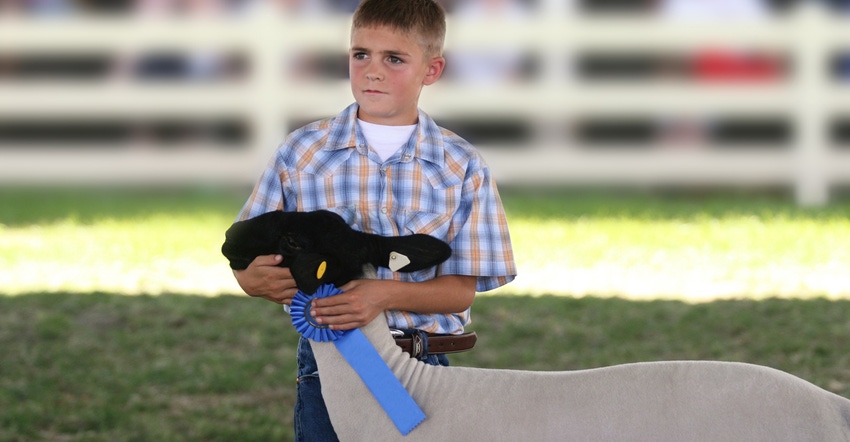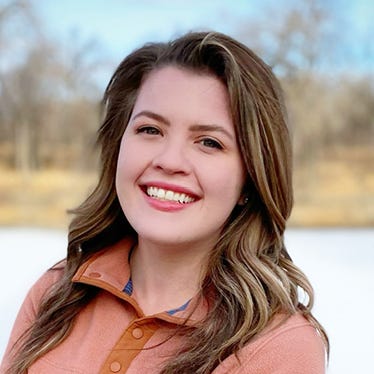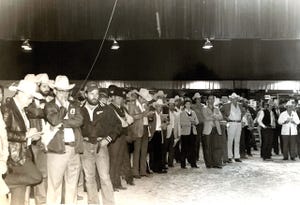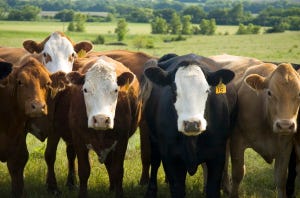Take 'KARE' to maintain biosecurity
Biosecurity in livestock is especially critical when traveling during show season.

With fair and stock show season coming into full swing, it’s time to maintain a biosecurity plan for livestock and people.
“You can never be too safe,” says Leigh Ann Skurupey, North Dakota State University Extension 4-H youth development animal and equine science specialist. “The spread between animals and humans is real, and sharing equipment can spread a disease from animal to animal, or something zoonotic, such as ringworm, from your animal to yourself.”
Skurupey says those who show livestock should practice good “KARE” this fair season:
K — Keep things clean. “Pens, buckets, feed pails, shovels, trailer equipment, all of those things can bring a disease home if they’re not properly cleaned, and cleaned in proper locations,” she advises.
Also, be careful not to contaminate your home operation. Properly cleaning items with warm soapy water and cleaning out trailers before you take animals home will keep any diseases encountered away from your herd. “It takes two seconds to make sure that any equipment is clean before we use it on our animal, our car, or equipment trailers,” Skurupey says.
A — Avoid bringing disease home. Before going home, change clothes and store them in a plastic tub or bag, and wash before re-wearing. “We want to be really careful about contaminating what’s already at home, and avoid bringing anything back with us,” she says. This also applies to show animals. Quarantine them away from the main herd, until you are sure that animals are showing no signs of a disease.
“If something was caught on the last day of the show, it can still incubate and needs time to actually be present. If your animal is quarantined for seven days, than you should be able to see signs of something, and the bill for that one animal is going to be cheaper than a bill to treat the whole herd,” Skurupey says.
R — Resist borrowing disease. Planning ahead and having all equipment you need will prevent the need of borrowing halters, buckets, shovels or brushes. If something is forgotten or borrowed by another exhibitor, wash items thoroughly before using it on or around your animals.
“Soap and water are super easy, and there are also some recommendations for bleach and water combinations that some in the horse industry use,” she says.
When petting or handling any animals that are not your own, Skurupey advises hand sanitizer as another way to prevent spreading disease between animals.
E — Educate yourself on signs on disease. Diseases that livestock could catch at a fair, clinic or a show could present themselves differently. “We’ve been doing this all year with COVID,” Skurupey says. “Ask yourself the same questions for your animal. Do you have a temperature? Do you have this symptom? It’s the same checklist we can use with our animals. Check if they have any irregular eye discharge, nose discharge. Are they eating? Are they lethargic? We can apply the same things to see if our animals are healthy.”
Mitigating biosecurity issues can be as easy as knowing the health requirements of your destination. “Try to know what is required of your animal. Some locations are going to require different vaccines as a facility, even if the state or county doesn’t require them,” she says.
“Do your part. Make sure you’re doing your part to stay educated and to walk through good biosecurity practices as an industry leader and mentor to your peers. Keep you, your family and your herd safe and healthy. We are all in this together,” she adds.
You can find more information about ensuring biosecurity practices at the NDSU Extension Livestock webpage.
About the Author(s)
You May Also Like


.png?width=300&auto=webp&quality=80&disable=upscale)


